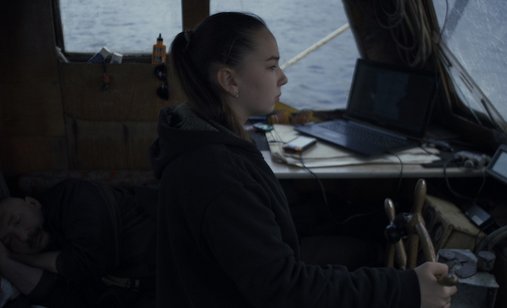


ZagrebDox Special Edition/ Awards

When you say A, you also have to say B. So here comes an edited versión of the press release of the ZagrebDox Special edition concerning, who were the lucky winners at the festival that ended last night:
In international competition the jury consisted of the award-winning Croatian documentary filmmaker Goran Dević, the Slovenian director, producer, teacher, artistic director and Makedox programmer Petra Seliškar, and the Czech director and photographer Anna Kryvenko. The main festival award, the Big Stamp, went to the film Froth (PHOTO) by Ilya Povolotskiy. “In a selection of 17 films, the jury was attracted by the minimalist portrayal of an isolated community in the direct film tradition. The director managed to discover the place and its history in today’s scenes of Murmansk,” said the jury. The special mention in this category went to the film Exemplary Behaviour by Audrius Mickevičius and Nerijus Milerius, with the following statement: “For an exceptional and dramatic personal approach to saying goodbye, collective revenge and systematic punishment turning a real life story into cinematic meditation. This film helps us understand the logic of the prison system, as well as people going through it, their lives, families and stories. The director himself faces issues with the system and has to find a way to come to terms with it.”
The Croatian journalist and editor Dean Šoša, the Italian set designer and
director Valentina Primavera and the film producer and artistic director of Trieste Film Festival Nicoletta Romeo are the members of this year’s regional jury, which gave the Big Stamp to the film Acasa, My Home by Radu Ciorniciuc. “A sober portrayal of the troubles of the oppressed class without any embellishment, rhetoric or moral judgment, following the taxing and intimate journey of a big Romanian family from the wilderness of the Danube delta to the big city, from an idyllic natural landscape to the civilisation and possibility for a better future, at least for younger generations,” said the jury. A special mention went to the Croatian film One of Us by Đuro Gavran. “A narrative documentary demonstrating empathetic closeness with the protagonists, a group of friends whose 15th prom anniversary unmasks a brutal discovery, a coming-of-age story about monsters from the past and a new, wiser outlook on life,” said the jury statement.
ZagrebDox also awards the Small Stamp, an award to the filmmaker up to 35 years of age. This year the Young Jury consisted of the Dutch director and producer John Appel, the Belgrade-based editor, director and screenwriter Jelena Maksimović, and the Mediterranean Film Festival Split director and Cinema Network president Alen Munitić. The Small Stamp this year went to Radu Ciorniciuc, the director of Acasa, My Home, “for a powerful directorial debut opening up important questions about the modern world and speaking about a family who have to give up their home in the wilderness and integrate with the society in a unique, plausible and emotional way,” said the jury. A special mention in this category went to Ilya Povolotskiy, the director of Froth, “for an exceptional cinematic language bringing us close to people and their daily struggle on the shores of the Barents Sea.”
The My Generation Award, presented by the founder and director of ZagrebDox Nenad Puhovski to a filmmaker of his generation, went to the American Oscar winner Alex Gibney, whose latest film Citizen K was screened in The Best of the Rest section.
The award of the International Film Critics’ Federation FIPRESCI, decided by the Macedonian film critic, writer and Kinenova festival programme director Igor Angjelkov, the Croatian film critic Marijana Jakovljević and the Latvian film critic Zane Balčus, went to the film Acasa, My Home by Radu Ciorniciuc. “For a film tackling many contemporary social issues: what kind of lifestyle to choose, what place to call home, how to adapt to new circumstances. Exploring these issues, the filmmakers open up space for the audience to think and form their own opinion. From a long observational process we are presented with a powerful story immersing us into the lives of the protagonists and giving us access to the key moments, highlighting emotional connection,” said the jury.